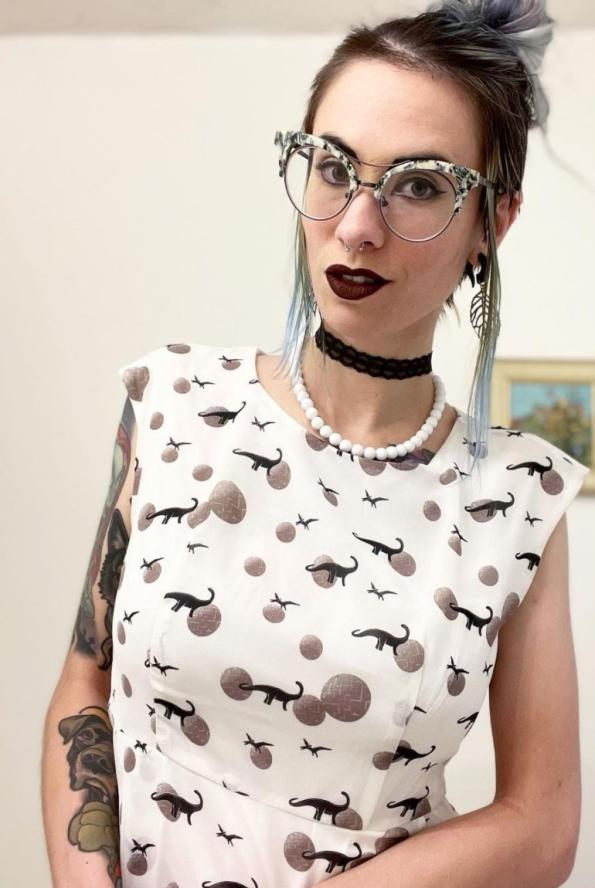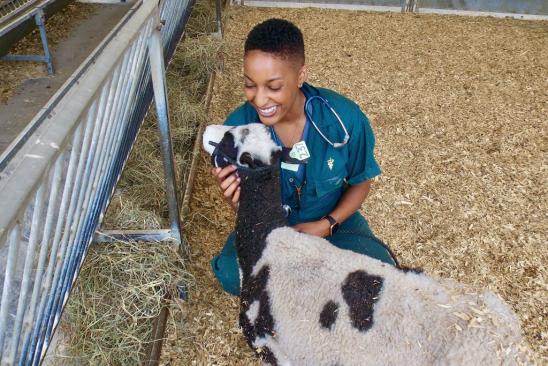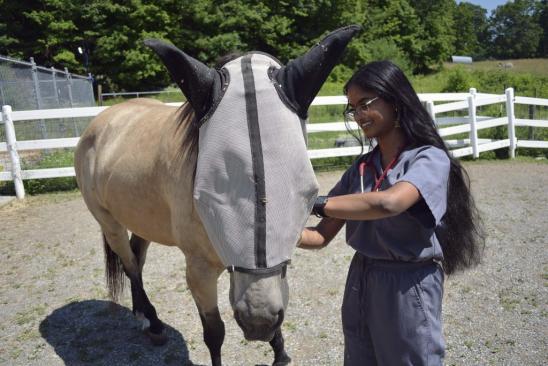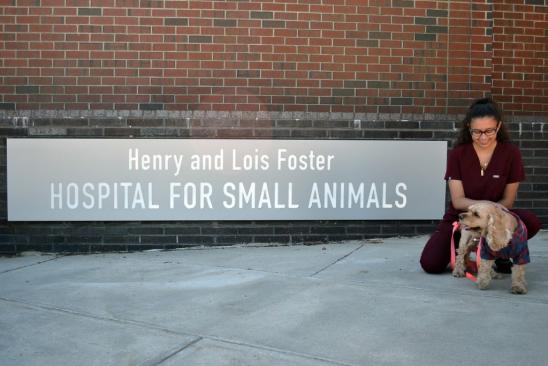-
About
- Leadership & Faculty
- News & Events
-
Academics
- Graduate
- Advanced Clinical Training
- Continuing Education
- Academic Offices
-
Student Life
-
Research
-
Hospitals & Clinics
- Emergency Care
- Hospital Services
-
Community Outreach
- Volunteer
Setting the Precedent
Stella Elwood, V23, is leading the charge to modernize an important education track for their fellow Cummings School students: diversity, equity, and inclusion (DEI).

In a field such as veterinary medicine which thrives on continuous growth and improvement, Stella Elwood, V23, is leading the charge to modernize an important education track for their fellow Cummings School students: diversity, equity, and inclusion (DEI).
Co-chair of the Tufts Veterinary Council on Diversity, Elwood identifies as biracial and queer and lives with a disability. “Because the veterinary profession has been so white, so cis-gendered, so able-bodied for so long,” they say, “and even though times are changing and people are becoming more open-minded, I’m trying to use the privileges I have as someone with different lived experiences and bring together different points of view to spread awareness.”
As co-chair, Elwood has been an advocate of mandatory DEI training starting at orientation. Associate Professor Flo Tseng and fellow faculty and administrators have responded to Elwood and their predecessors with a new, mandatory Diversity and Professional Perspectives (DPP) course.
As just one of three students in their class to use “they/them/their” pronouns, Elwood has also created a program adding first pronouns identifier pins to student badges. “I’m only one a few right now,” they say, “but as more people are admitted, I want to set a precedent for them.”
Spanish language workshops are on the council’s agenda, so clinicians will be better resources for Spanish-speaking clients. Elwood has also continued a photo campaign proposed by a recent alumna, showing students of color performing procedures—photos that can be used campus-wide, as well as at conferences. “It’s hard to find representation because we don’t have it, so it can be self-perpetuating,” they say. “But we don’t want anyone to say, I don’t belong here because I don’t see myself here.”
Suffering in silence is a common symptom of marginalized populations. Elwood doesn’t want anyone to hide their voice. The council is working on an accessibility portion of the website, listing all of the accommodations students can ask for; adding more handicapped parking; and advocating for better alternatives for those who face physical limitations in the clinic.
The council also created a campaign to write thank you cards to Cummings’ custodial workers, many of whom haven’t been able to see or get in touch with family since the pandemic began. “Often invisible but important work,” they add.
All of the council’s work has been guided by the community via surveys and board meetings. “If folks have ideas, we’re very open—and our meetings are open to everyone.”


